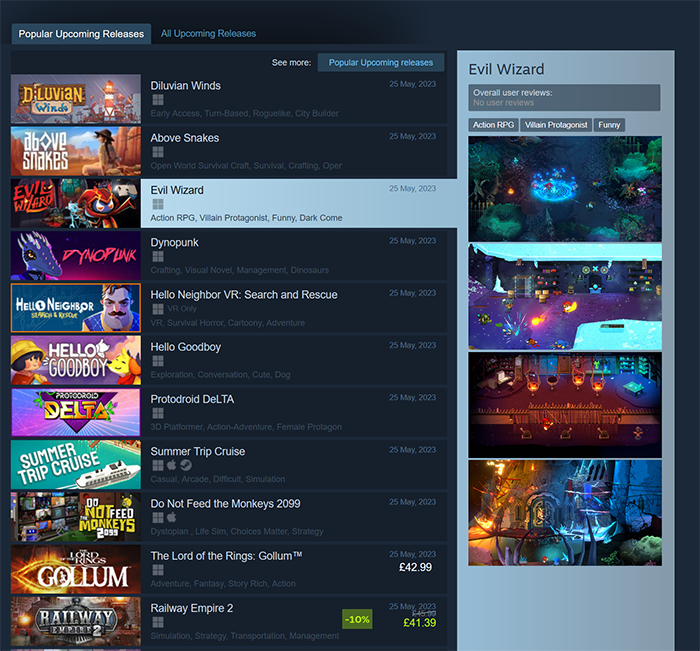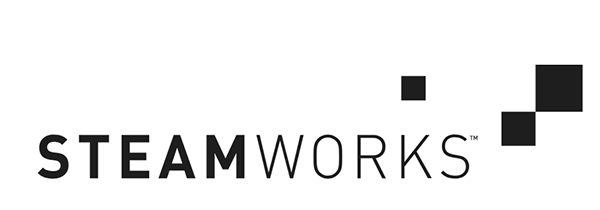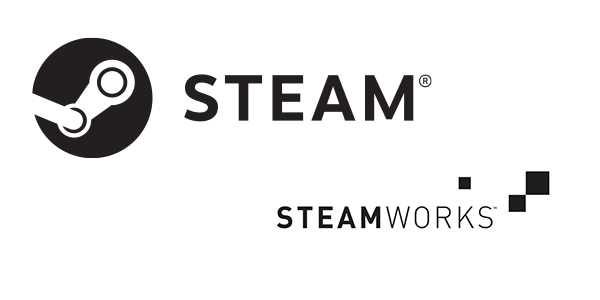Have you ever wanted to make money from publishing your own games on Steam? Indie developers have been doing so for the last couple of decades and with Steam's amazing support for promoting indie titles, it's never been easier to make money from being a gaming dev.
- Steam's Indie Game Developers
- Publishing A Game On Steam
- How Much Money Can You Make from Indie Games?
- What can be causing your Steam Game to not make any money
- What You Can Do To Improve Your Steam Sales
In this article we'll look at how you can publish your own games on Steam, the fees involved and how much money can you actually make from publishing a game. Whilst not getting too specific, this will hopefully give any new developers an idea of what to expect should they take on the indie dev journey!
Steam's Indie Game Developers

Anyone can publish their game on Steam.
That is an enticing thought for wannabe game developers and with some of the most powerful game engines being made available to developers, it has never been easy to start making your own games. Making a successful game, however, is a different story...
Steam, operated by the company Valve, is a storefront for video games and has been the #1 market leader for PC Gaming for years. There are other platforms out there, but Steam is the Amazon of Video Games. If you're looking to buy a new PC game, you usually head to Steam first.
Steam has a great user interface and buying a game is incredibly simple and easy to use. Customers can install and uninstall games from their library as they please, allowing for thousands of game downloads. It's also built up a reliable brand name and customers have confidence their purchases are going to stick around.
And it's not just the main AAA games that Steam sells; it also has a healthy and competitive indie game market that publishes thousands of low-budget games per year. You can take a look at the Upcoming Titles page and see how many of those games are made by small teams of devs.
Some of those games are shockingly bad; some are just about good enough for their price point and others are gems that are well worth your money. With Steam's Review sytem in place, it can give you a quick glance at whether a game is worth your time and money. Steam has a decent return policy too- if you buy a game and don't play it for more than 2 hours, you get a full refund. Awesome!
And with more and more excellent Indie Games being published each day on Steam, the audience's appetites for these games are increasing. Gamer's are starting to trust Indie Game Developers more and more, knowing that they can deliver on some of the best gaming experiences they have ever had.
You don't have to look far for stand-out success stories for indie games; Minecraft was originally developed by a single developer and was sold to Microsoft for a bajillion (billon) dollars.
Stardew Valley is one of the most popular games on the planet; developed by a single person and it now is available on multiple platforms and is constantly in the top selling charts.
Terraria has almost 900,000 positive reviews and is constantly in the top charts for best selling games.
Publishing A Game On Steam

So what does it take to publish a game on Steam and how does it work? It's actually very simple.
You sign up to the Steamworks Partner Program and start uploading your game. There is a 30-day window before you can begin selling your game and a $100 application fee that is payable upon submitting your game.
You don't need to have a game fully developed to sign up to the partner program. If you're planning on publishing your game in a years time, now is the perfect time to sign up and start building an audience for your game.
The whole process is streamlined for small and large developers to submit their games; Steam's tools have been designed to make the process as simple as possible.
The hard part comes with making your game visible to Steam's huge audience and it's one of the many struggles Indie Developer's will face with their debut titles.
As part of uploading your game to Steam, you'll also need to create a Store Page that describes your game, upload images and video content to preview your game and figure out your pricing.
Pricing your game is a whole other ball-game that you'll need to figure out; pricing too high can deter sales and pricing too low can make audiences not give your game a chance.
Steam also take a 30% cut on any sales you make and don't forget licensing fees for Game Engines you use. Game engines you can consider using:
How Much Money Can You Make from Indie Games?

Earning money from your Indie Game is very easy with Steam, but earning enough money to make it worth the effort to create a game or even make it your full-time job is another story.
Trying to second-guess how much money your game will make is almost impossible. There are so many different factors that come into play that can affect how your game performs that you should try not to put too much focus on it.
Check out our Steam Revenue Calculator for an idea of how much you can make.
However, getting an idea of the potential is always a good idea. It can help you come up with a budget for your game, give you an idea of how well your game needs to sell for you to make any money and more.
Luckily, you can find plenty of Indie Developer's sharing their sale numbers on YouTube, Reddit and Twitter that can give you a better idea of what to expect.
We reached out to AuroDev, who publishes games via their Redbeak Games studio on Steam and also runs a YouTube channel offering great insight into how much you can earn from publishing Indie Games. They've been kind enough to let us use some of the data from their videos to showcase the reality of your potential earnings from creating an Indie Game!
AuroDev published their game Mortal Glory on Steam in January 2020. After 2 years, their sales looked like this:
| Name | Y1 | Y2 | Total |
|---|---|---|---|
| Base Game Copies Sold | 17,486 | 6,456 | 23,942 |
| Base Game Gross Revenue | $113,013 | $33,455 | $146,468 |
| DLC Copies Sold | 4693 | 4625 | 9318 |
| DLC Gross Revenue | $15,556 | $13,877 | $29,433 |
The game currently (1 year later from this data) has around 486 Reviews. When this data was published, it had around 400 Reviews.
You can then see that the amount of Reviews equals around almost 60 times the amount of sales. This number is going to vary wildly for each game, but you can use it to help get an idea of how many sales a game gets based on the amount of reviews it has. This doesn't take into account DLC sales or other kinds of revenue the game generates.
AuroDev also happily shared their development costs for this game, which was just over $3000! They also shared other numbers such as refunds, steam's tax cut and more. It's well worth a watch of the video to get a better idea.
Your earnings are going to be over time also. Many games peak during their first month and first year of sales and then it starts to drop off dramatically after that.
What can be causing your Steam Game to not make any money

So you've invested thousands into your brand new game, paid for reviewers and YouTubers to play it, launched it on Steam and after the first month of sales you realize your game didn't sell quite as well as you hoped.
This is one of the most common scenarios Indie Developers find themselves in. You might have done all the market research in the world, identified similar games to yours and even gotten great feedback from your brother's best friend's sister's dog that your game is actually top tier.
Yet still, where did it all go wrong?
Bad Store Page
When you capture someone's attention on Steam, enough for them to click through to your game's Store Page, you need to have an excellent game pitch. This is how you sell your game, how you explain exactly what it is they're buying and make it crystal clear why they need to add this game to their shopping cart.
A bad store page is one that doesn't explain what type of game it is, doesn't give much information about the characters or story of the game and provides screenshots/videos of bad game play.
For any new Indie Developer, studying successful game store pages can make a real difference to how you should setup your own.
Bad Advertising
If you have an advertising budget, you need to know your audience.
You might have identified your favorite Twitch streamers or created a Google Ads Campaign that targets gamers, but those can all lead to throwing away thousands of dollars.
You need to get specific; look at similar games in your market and see who is playing them. Role Playing Games with turn-based battle systems are not going to interest too many people who love playing Life Simulation games.
Pricing Your Own Game
We touched on this before, but the pricing of your game can also be a cause for lack of sales.
If you price your game too cheaply, your audience can think the game isn't going to have much content, isn't going to be worth their time to play and ultimately is made by an amateur. Some niches love low priced games and will gladly accept low-cost games.
Pricing too high can also cut off your potential customers; your audience will look at your screenshots, videos and other media to determine whether they think your game is worth the price.
Luckily, you can change the price of your game, so if you find your game is not selling well, it might be time to adjust.
It may simply just be that your game hasn't resonated with your audience and that it's time to move onto your next one. But you should also try to understand why the game failed to make sales before you do.
What You Can Do To Improve Your Steam Sales
There are some easy wins you can do to try and improve your Steam sales.

The first would be to start using social media to your advantage; you have an amazing amount of social media networks available to you, for free, to help grow a following. Connect with other game developers, follow YouTubers and Twitch streamers to build connections. These small connections can start snowball effect of your game getting recognized.
If you don't have a big advertising budget, you can try giving out free game keys to other streamers/youtubers. Whilst many will probably not pick up your game, you might find one or two play it, really love it and show it off to their own audience.
Keep your game updated; updates can give your game mini promotional boosts by appearing in Steam users feeds. Of course, this can mean more work hours, but try to find a good balance.
It can take multiple attempts to make a game that connects with people; your first game is likely to be a dud. With each game you make, you're likely to learn something new, understand your market better and progress. It is why many Indie Developers don't quit their day jobs; it's a slow process of finding something that works and then building on it.
Let us know if you've ever sold a Steam game and how your earnings faired compared to what you expected in the comments below!

Discussion